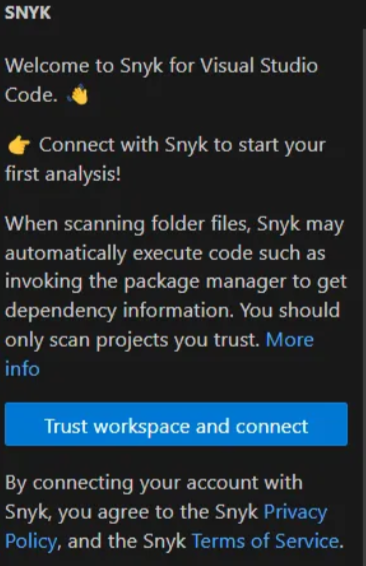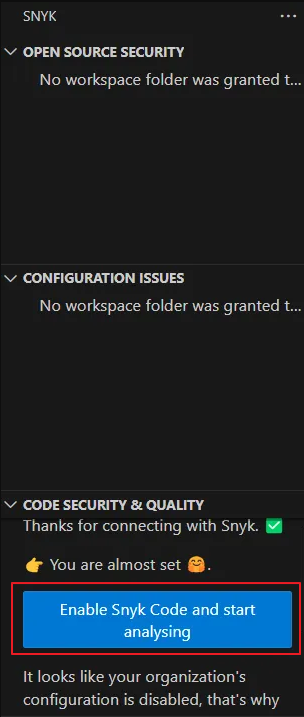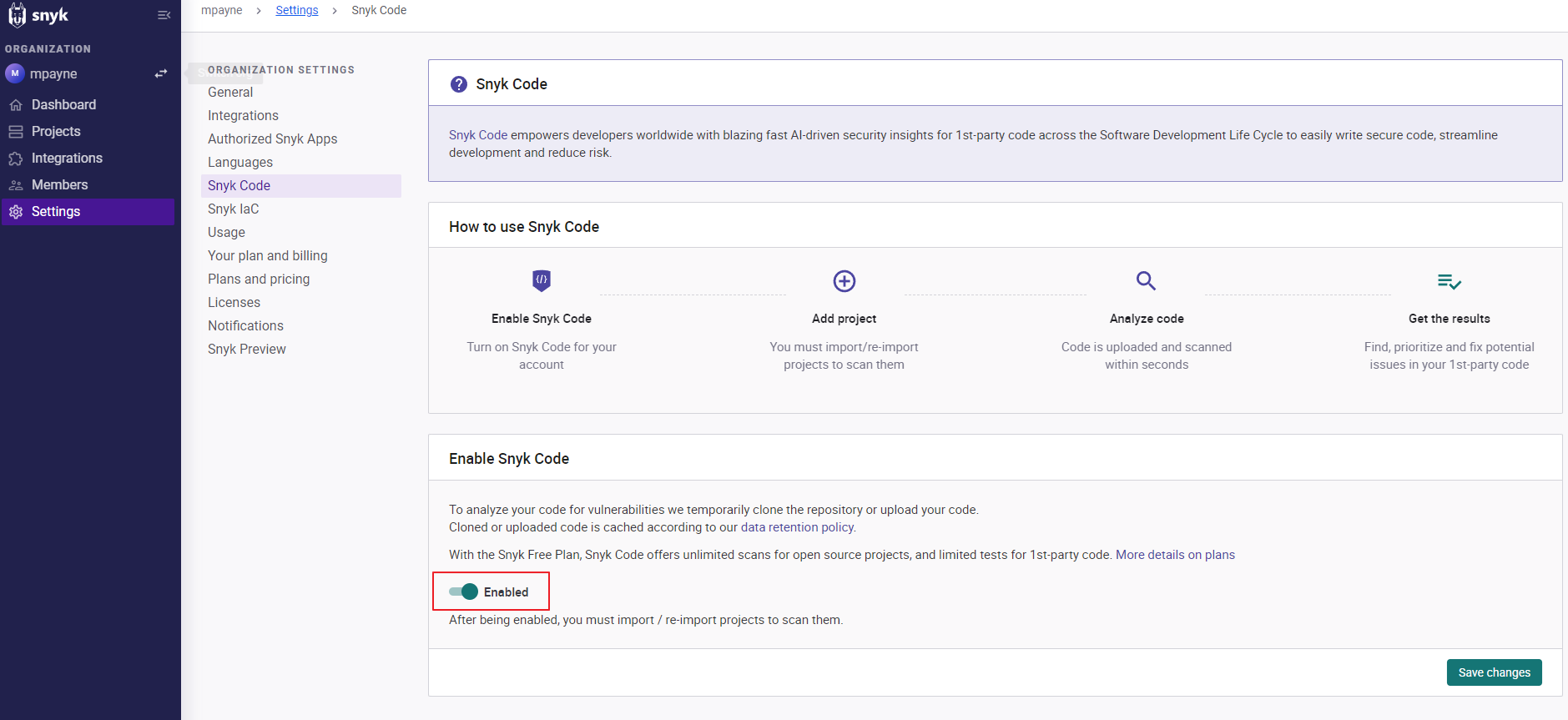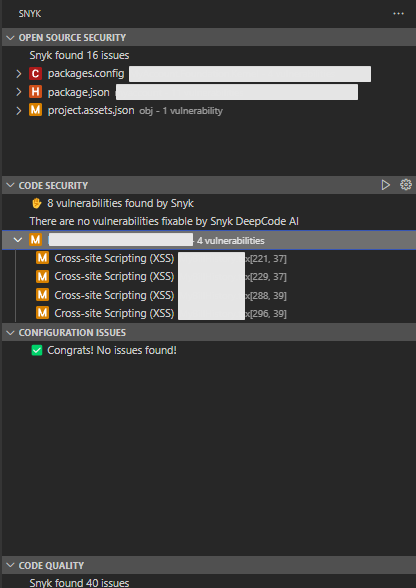Using Snyk to Find Vulnerabilities and Improve Code Quality in a Sitecore XM Cloud Next.js Solution
Installing and using the Snyk Visual Studio Code extension to continuously monitor and improve code quality and security in your Next.js projects
Installing and using the Snyk Visual Studio Code extension to continuously monitor and improve code quality and security in your Next.js projects
In today's digital landscape, where data breaches and cyber threats are rampant, ensuring the security of your codebase is important. As developers, we strive not only to create functional and efficient software but also to safeguard it against potential vulnerabilities. This is where tools like Snyk come into play, offering a comprehensive solution to identify and mitigate security risks within your code while simultaneously enhancing its quality.
Snyk is a developer-first security platform that helps developers find, fix, and prevent security vulnerabilities in their code and open-source dependencies. Its powerful features allow developers to seamlessly integrate security checks into their development workflows, enabling early detection and remediation of vulnerabilities.
Snyk's utility doesn't end with a one-time scan. It offers continuous monitoring capabilities, automatically checking for newly discovered vulnerabilities in your codebase and dependencies. This proactive approach ensures that your software remains protected against emerging threats, giving you peace of mind as you continue to develop and deploy your applications.
Identifying vulnerabilities is only the first step; the real challenge lies in fixing them. Snyk simplifies this process by providing detailed guidance on how to remediate each vulnerability detected in your codebase. It offers actionable recommendations, including suggested patches, library upgrades, or alternative dependencies, enabling you to quickly address security issues without sacrificing development velocity.
In addition to enhancing security, Snyk also helps improve code quality by highlighting outdated dependencies, deprecated APIs, and other potential issues. By addressing these concerns proactively, developers can ensure that their codebase remains maintainable, scalable, and resilient over time.
Accessing Snyk's powerful security and code quality features is straightforward and free. Simply install the Snyk extension for Visual Studio Code (VS Code) and create an account. This extension integrates seamlessly with your development environment, allowing you to scan your Next.js projects for vulnerabilities and code quality issues directly within VS Code.
The Snyk Visual Studio Code plugin scans and analyzes your code, covering open-source dependencies and infrastructure as code configurations. It's available for free download and can be used with any Snyk account. It scans for vulnerabilities and returns results with security issues categorized by type and severity. These results will appear directly in line with your code in the IDE.

Once you can see the results, you will need to install the Snyk Security extension selected in the screenshot (note: Snyk Security has already been installed in this environment hence this is why you are not seeing the Install button).

Select Trust workspace and connect which will launch a Snyk authentication page in your browser. Click on Authenticate and log in or set up an account.

In the Snyk Dashboard, under Settings, we will want to select Snyk Code. Under the Enable Snyk Code section, ensure that the toggle is displaying Enabled.


Highlighting any of these issues will give you a side by side window of your code and the recommended remediation for the issue at play.

By leveraging the Snyk VS Code extension, you can seamlessly integrate vulnerability detection and code analysis into your teams development workflow. This approach not only helps you identify and fix issues early but also ensures your application remains secure and robust. Start using the Snyk VS Code extension today to build secure and high-quality Next.js applications.
Start typing to search...